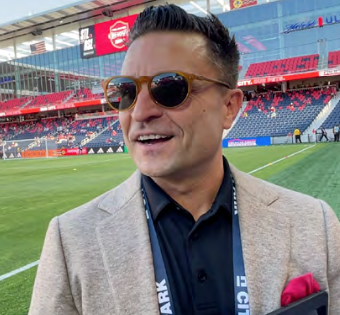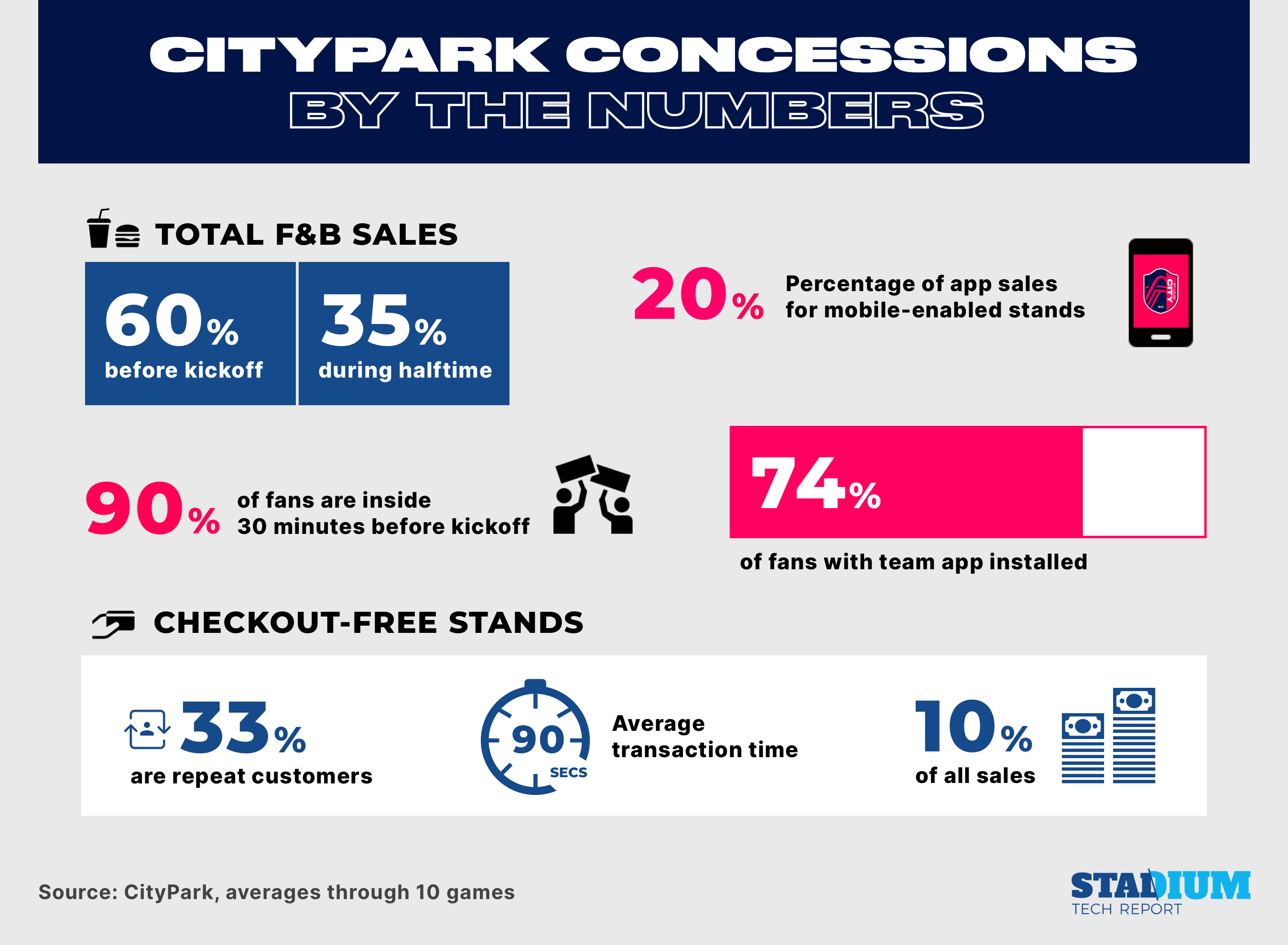
On and off the pitch, it was a successful debut season for Major League Soccer’s St. Louis City SC and their new home, CityPark. Listen in as we talk with chief experience officer Matt Sebek about how all the strategy and planning behind CityPark’s innovative technology and operations set the table for the amazing first year of operations.
On and off the pitch, it was a successful debut season for Major League Soccer’s St. Louis City SC and their new home, CityPark. Listen in as we talk with chief experience officer Matt Sebek about how all the strategy and planning behind CityPark’s innovative technology and operations set the table for the amazing first year of operations.
Looking back from the time the team was awarded the MLS franchise through the opening season, Sebek said that St. Louis City SC went in from the beginning thinking of the operation not just from a sports perspective, but from one that looked at it as a consumer brand with multiple fan-experience touchpoints. In addition to looking at how other teams operated, Sebek said he called on his experience in the retail brands world to consider other approaches, like how Disneyland treats its customers.
“We really took a consultative approach,” Sebek said. “Many touchpoints add up to the fan experience.”
Expanding the window for concessions purchases
One of the unique things soccer has compared to other sports is a traditionally small window for fans to purchase concession items. At other stadiums the St. Louis City SC team observed, fans typically would wait until the last minute to enter the stadium. Since soccer doesn’t have all the built-in timeouts that other sports like baseball or football do, most concessions purchases historically took place in the 15-minute halftime break, a huge challenge for most soccer venues.
Subscribe to the Stadium Tech Report podcast on iTunes!
By taking a technology approach that included a home-built team app, Sebek said St. Louis City SC came up with a strategy to try to increase the concessions ordering window by prioritizing early arrival and use of the app’s mobile order-ahead feature. While it was a challenge to get the stadium’s food providers to participate — since CityPark’s concessions are provided by 100 percent local providers — Sebek said the combination of great food and an easy to use app enabled CityPark to flip the traditional fan behavior. This season, Sebek said, St. Louis City SC saw 65 percent of its food and beverage orders occur before kickoff, benefiting both fans and the stadium operations.
Additionally, CityPark saw 23 percent of all food and beverage orders taking place through the app, either via order-ahead or by fans using the wallet function to simply scan and pay.
“What the app gives us is really a 25 to 30 minute window for halftime orders, since fans know they can order 10 minutes before halftime and then go pick their order up,” Sebek said.
Sebek also praised the local food vendors for buying into the technology, and said it paid off on the bottom line with more than $3.5 million in revenues earned by the CityPark concession providers.
A world-class wireless deployment
While the stadium itself is an architecturally pleasing layout with open sides, one of the hidden strengths of the entire operation is a world-class wireless network designed and deployed by partner AmpThink, the company that has delivered multiple stadium technology deployments including the entire converged network at SoFi Stadium in Los Angeles. According to Sebek the AmpThink wireless network not only provides coverage for fans inside and outside the stadium walls, it also covers the entire 31-acre CityPark location, which currently includes team practice areas, team headquarters, a team store and plans to add more buildings over time.

“Instead of having five different networks for everything we have a single converged network across the entire campus that we can leverage all year long,” Sebek said. Because the AmpThink design included core network elements spread throughout the entire footprint, Sebek said players, coaches and other team employees can stay connected no matter where they are on the property.
“It’s just a massive advantage for us,” Sebek said.
Looking ahead to keep improving
While allowing that St. Louis City SC did well “by making some good and wise bets,” Sebek said the team is already looking ahead to see how it can keep improving the fan experience. Being able to use data collected during the first year to see how it may be able to make each fan’s journey even more personal is a priority for Sebek, who wants every visit to CityPark to be “magical” for fans.
And the fans themselves deserve some of the credit, Sebek said.
“You might think that living in the middle of the country, people from St. Louis might be somewhat fearful of new technology, but we found out that was not the case.” From game to game, Sebek said the CityPark attendees embraced new options being added.
“The lesson for us is that a culture of change is good,” Sebek said.
MORE CITYPARK COVERAGE
MORE STR PODCASTS
STR Podcast: LAFC’s Christian Lau talks about ‘the fan experience of the future’
STR Podcast: Andrew McIntyre talks about blending tech and innovation at Tampa’s Amalie Arena
STR Podcast: Aramark’s Alicia Woznicki talks about the tech revolution in concessions
STR Podcast: Zippin CEO Krishna Motukuri touts the power of checkout-free technology
Technical production for the Stadium Tech Report podcast is led by Creative Director Dan Grimsley, and Digital Designer Jackie Nguyen. Web and design work is by David Fares and John David. All contents of the Stadium Tech Report podcast are copyright, Stadium Tech Report. Audio, video and print content may not be re-used without the express written consent of Stadium Tech Report.


